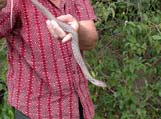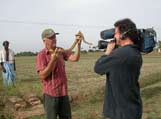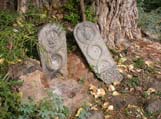SNAKES ALIVE - FINALIST
INDIA
Snakes Alive
Most Indians hate snakes. On the one hand, snakes such as the cobra and the saw-scaled viper play a vital ecological role, helping to keep down the country's vast rodent population which eat some 20 per cent of all India's crops. Without snakes, that percentage would be much higher. Yet snakes kill up to 20,000 people every year - the highest snakebite fatality rate in the world. Small wonder many Indians favour the extermination of these useful reptiles. There is one group of people, however, who actively seek them out. For hundreds of years the Irula tribe has specialised in catching snakes, mainly for their skins. In 1976 this practice was outlawed by the government, forcing many of the Irula into abject poverty. Salvation came in 1978 when wildlife expert Romulus Whitaker saw a way to help them out - by encouraging them to catch snakes again. Not for skins this time, but for their venom, using an extraction process that leaves the snakes unharmed. The venom is used to create anti-venom serum for the treatment of snakebites. Having donated their venom over a four-week period, the snakes are released back into the wild to resume their valuable rodent-culling function. It took a while for Whitaker and the Irula people to convince the government of the benefits of their venom-collecting enterprise. But convince them they did, and the Irula Venom Centre now supplies up to 80 per cent of the venom for India's medical needs.
















































































